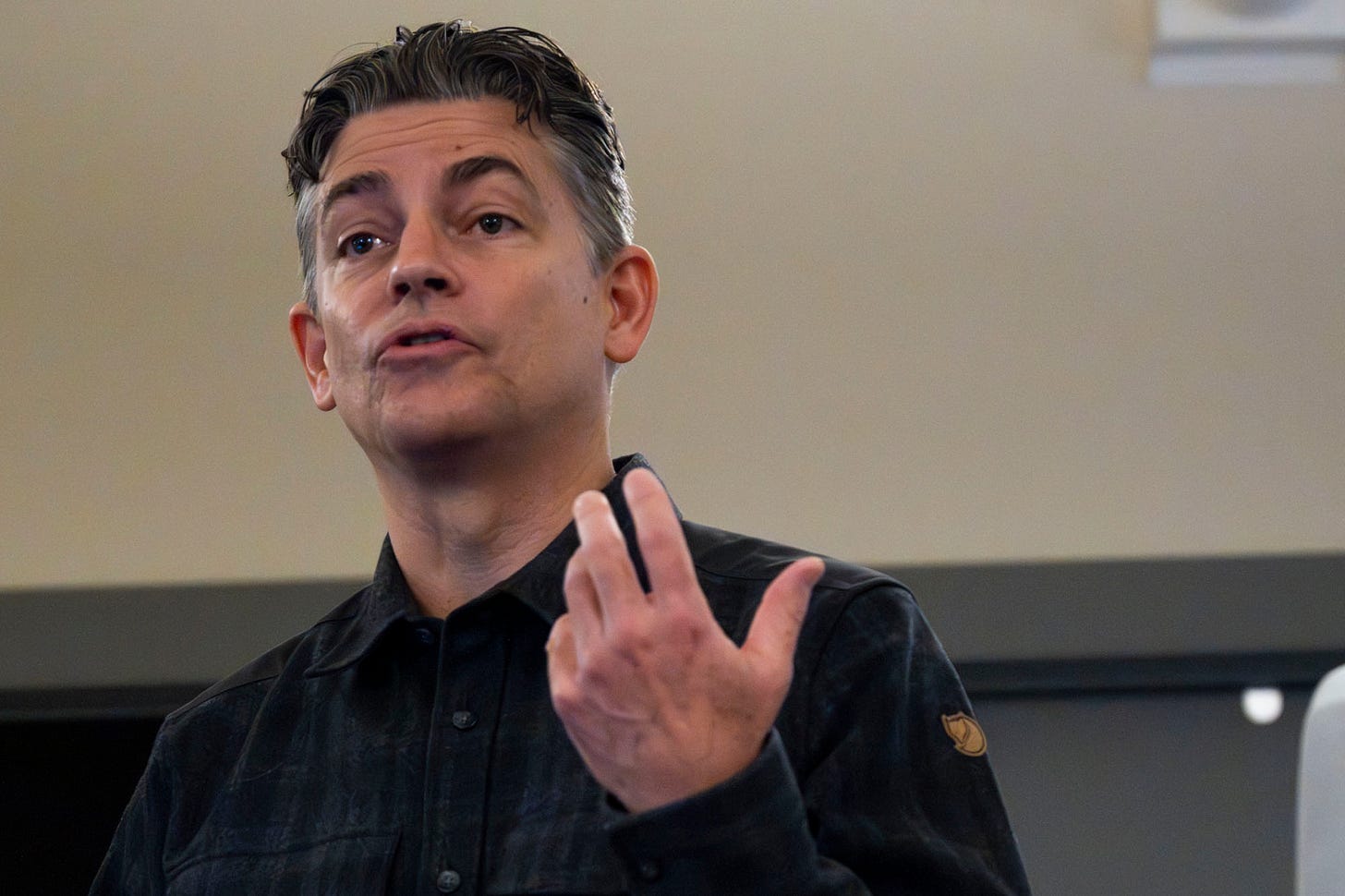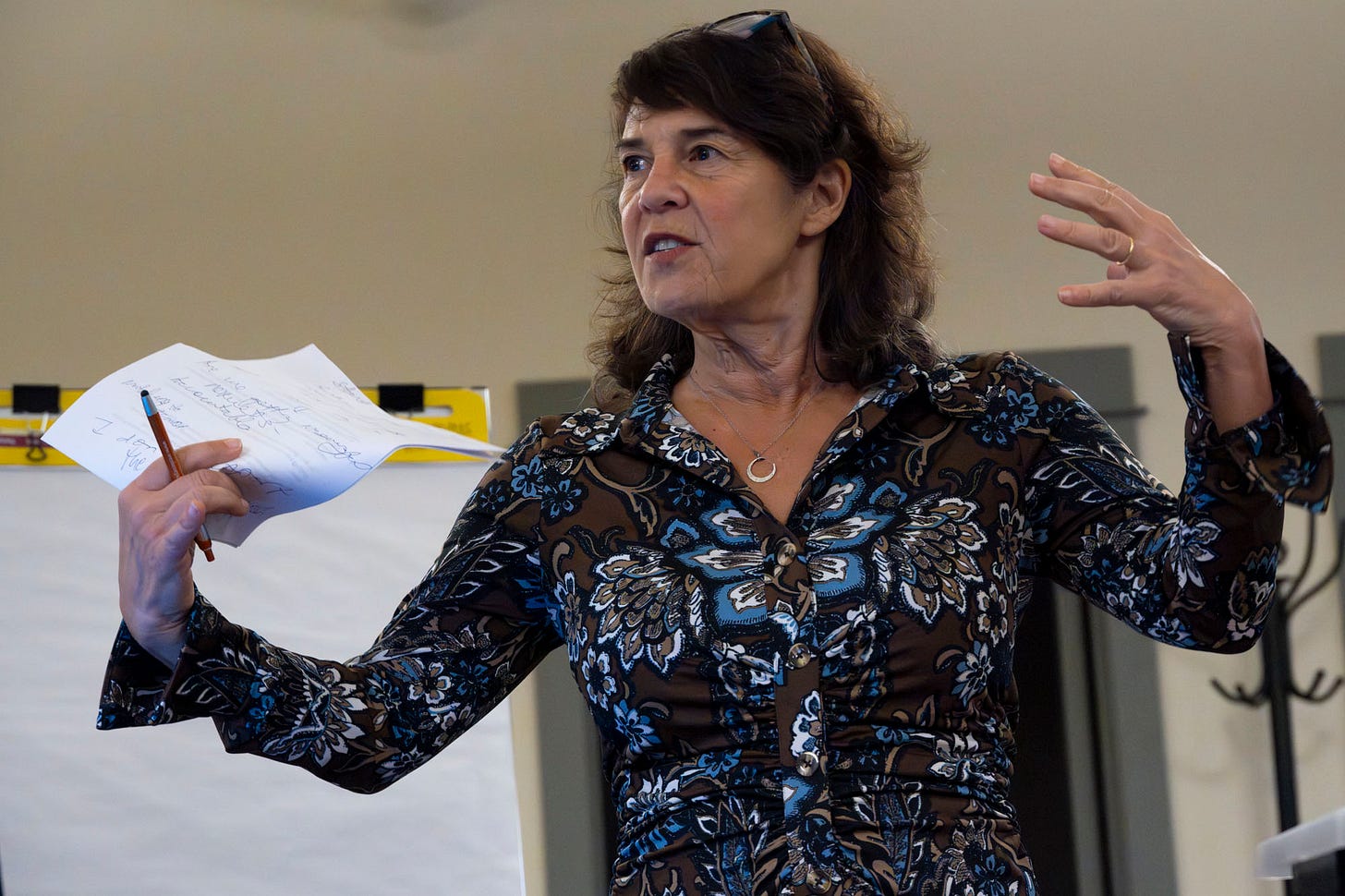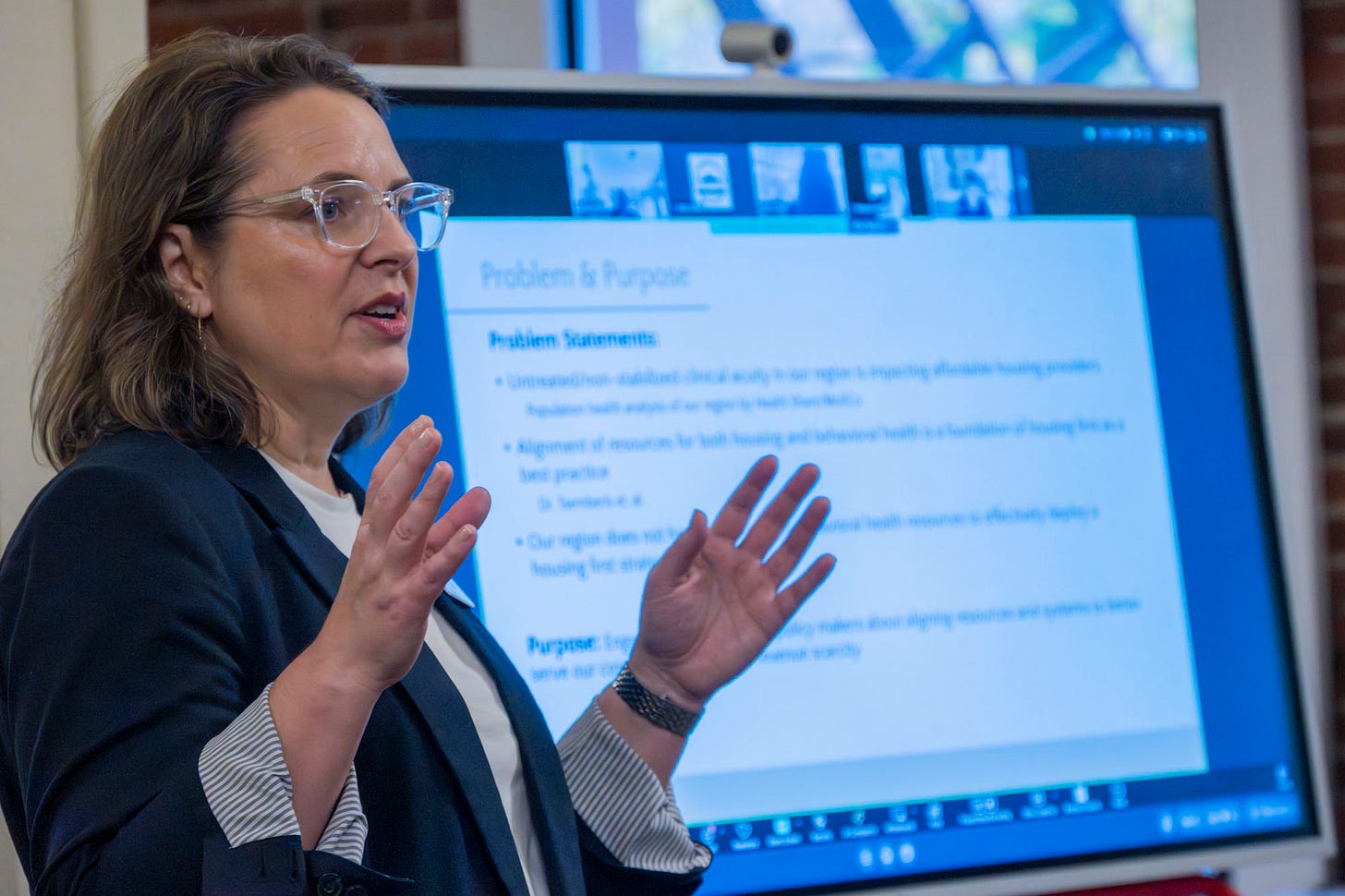Homeless forum taps into broad discontent
Benefits of a centralized intake process offered as a step forward

People fed up with the local response to homelessness have started getting together and comparing notes. A forum organized by the Homeless Solutions Coalition on Wednesday brought together neighborhood activists, social agency managers, reformers and a few elected officials to consider why the status quo has not been working.
The headline speaker was Andy Mendenhall, executive director of Central City Concern, the primary Oregon nonprofit providing temporary and permanent low-income housing, behavioral health, recovery and employment services.
Central City’s recent critique of the Housing First model—often disconnected from treatment—declared the approach unsustainable for the agencies that run them, destructive on communities and neglectful toward those it seeks to serve.
“Our own sustainability is now at risk,” Mendenhall said, noting that his staff members burn out in frustration at seeing people decline and return to the streets.

Former Multnomah County Commissioner Sharon Meieran said “chronic homelessness is actually getting worse despite all the funding. When things are going this badly year after year, you have to ask, ‘What are we doing?’ Many of us have come to the same conclusion.”
Brooke Goldberg of Central City Concern, who with Mendenhall co-authored the agency’s Sept. 10 report, said she has heard wide affirmation and only slight pushback since its circulation.

The message that housing alone without treatment solves nothing was reinforced by Lance Orton of CityTeam, Vadim Mozyrsky of Partnership for Progress, Ken Thrasher of Northwest Community Conservancy, Alan Evans of Bybee Lakes Hope Center and David Dickson of Homeless Solutions Coalition, who convened the meeting.
While the forum was not aimed toward recommending solutions, there was agreement on the benefits of creating a centralized intake process so that people seeking help could be matched with the particular services they need. Those with certain types of mental health issues should not be placed with those fighting addiction, for instance.
“Some people truly, they just need a housing placement,” Mendenhall said, “and we need to do that as quickly as we possibly can [to get them] out of the shelter system.”
When people are directed toward the services they need, he said, eight or nine out of 10 do well.
Dickson, who helped organize a homeless forum through the Downtown Neighborhood Association six years ago and has worked on the issue since, says he hasn’t seen this many people focused on addressing homelessness in many years, possibly ever.
David Dickson, convener of the forum, is amazed by the enthusiasm for a different approach to the city’s chronic homeless problem.



Re: "....agreement on the benefits of creating a centralized intake process..." Bureaucrats gotta bureaucrat. Yet another layer of the well-paid making their living in this dismal business...with no one with the guts to say that it's the various and varied "services" that fueled the creation of an enduring (and profitable) underclass.
Since we're now run by socialists, perhaps we should revert to a well-worn capitalist tenant: incentives create behavior.
Who seriously expects Central City Concern to actively try to put itself out of business when it just leased a. seven-story Old Town building...just to house its staff?
To expect players in the game to pack up and walk away is to engage in delusion. Note our capon-mayor's Wilson's latest fantasy--clean up Old Town and homelessness goes away. To paraphrase a famous headline: Wilson to Neighborhoods: Drop Dead.
I am skeptical of this supposed way forward. Really what they are saying is that we have been poorly managing this public emergency. If the city can be managed, the county, it likely won't be managed well by those who have dramatically failed in their efforts to do so. Let newcomers take a shot at the problem. Past leaders have failed and are embedded into the problems we are trying to resolve.